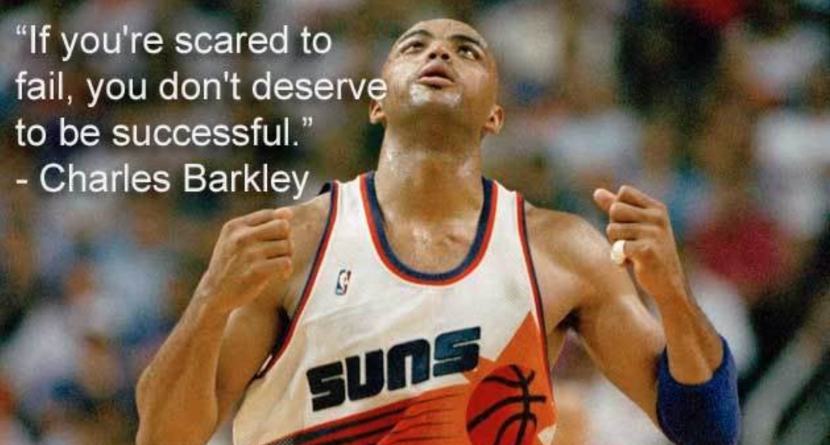Did you enjoy the “drawback drill”? Did it kick you in the teeth? Did you do well for most of it and epically fail in part of it? Did you discover that you needed to focus more? Did you start tinkering with your motion? Did you leave having more questions and feeling discouraged? Did you do it several times and make some improvements?
If you experienced any of those things then you’re beginning to practice effectively. These are all of the emotions and thoughts that we have to take control over in order to perform on the course. Learning to deal with all of these things in a smaller version is essential to learning how to deal with them on a larger hole on the course.
Before we go further, this is the place at which I get pressure from people. But what if I fail at these things? Doesn’t that destroy confidence? How am I going to be able to perform if I fail in practice?
A couple of thoughts:
- Do you think that you’ll be able to handle the really hard task on the course of having to perform on the first try, if you can’t handle a drill with no real consequences for failure? Absolutely not. To ask someone to go from no pressure to “heavy” pressure is an unreasonable request and amounts to real failure with little to no incremental successes to fall back on.
- What is your definition of failure? Failure is the catalyst for growth, not the antithesis to growth. There are forms of failure that are too high and can perpetuate habits of future failures. In fact, the way most people practice currently does just that – long sessions of the same shot (or shots) over and over again with no real penalty for failure cannot and will not prepare you for the pressure and nerves you’re going to face. Look to these practice challenges to add heavy pressure to you and to train you to overcome them through failure and incremental improvement at the drills.
- What is confidence? Why are you afraid of losing it? At the end of the day, if you fear losing confidence or not having any then you don’t understand how learning happens or what learning really is. Confidence, and here’s the kicker, cannot be built in the absence of stress, and in order to increase confidence incremental layers of stress must be added as challenges are met and improvements in skill and mental strength are made.
- Consider this alternative perspective: If your golf practice can be made harder, more frustrating, and more stressful (over time and as skills improve) than the actual game itself is, then your experience of actually playing the game in competition will seem easier than practice. It’s the way some of the best coaches have trained their players for loud stadiums, fast-paced teams on the court and more. In fact, one of my favorites came from a famous basketball coach. He would train players in practices leading up to big games by having them play a full internal scrimmage by full-court pressing on every single defensive play. He wanted his players to experience their games as feeling “easier” than practice. In fact, they actually “looked forward to the games, because they were going to be so much easier than practice.”
Understand this…stress opens up your opportunities for growth. Take a moment to stop and reset as you hit roadblocks when practicing with the types of stress that I’m about to show you. Get creative this week and add a little stress in your practice. I have some incredible tips coming for you in the next few weeks. I need you to first understand these principles, because the road I am leading you down is hard…but oh so worth it! Not get out there and “drawback your putting” until your heart’s content!






